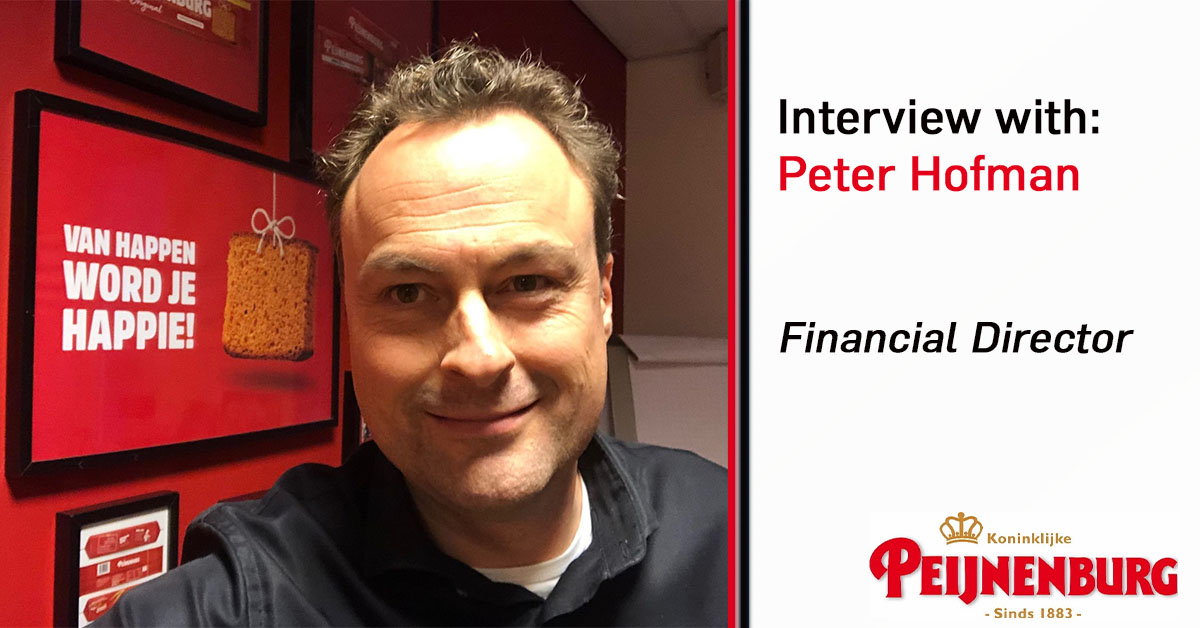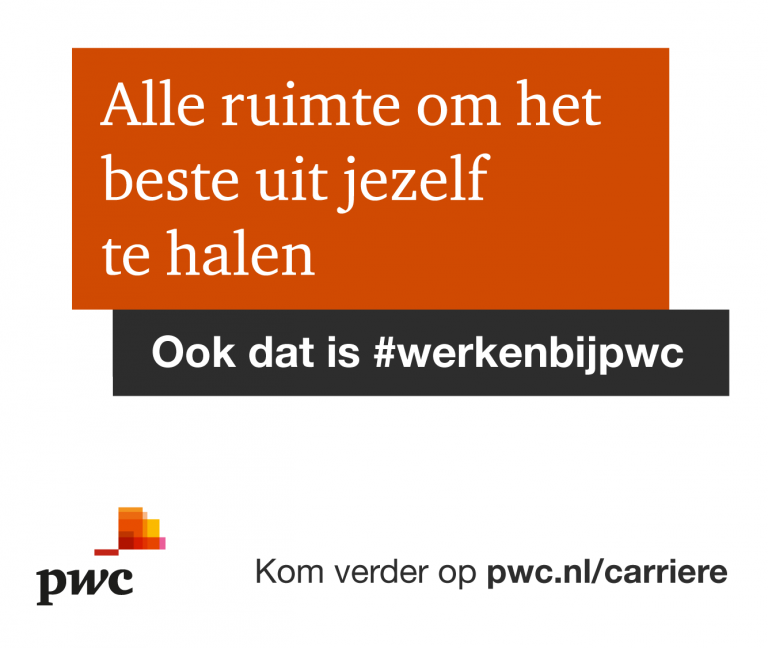For the Dutch version, click here
In this interview, Peter Hofman, Financial Director at Peijnenburg B.V., talks about his career, the work culture within Peijnenburg, and he gives recommendations to students.
Can you tell something about your background?
I started studying business economics, first at the HEAO and subsequently at Tilburg University. After that, I became active on the job market. My career started at Philips, where I had a function at Consumer & Marketing Intelligence. Although this is not a job in the field of business economics, I experienced the job as very interesting, as it broadens your perspective on a company as a whole. I believe that broadening your knowledge outside the exact scope of your of study, especially at the start of your career, can be very valuable. After Philips, I worked as controller at DHL and at the Bel Group. I started as a business controller at Peijnenburg four years ago, where I broadened my function with plant controlling as part of my responsibilities. Two years ago, I was asked for the position of Financial Director in Peijnenburg’s management team.
Could you shortly tell something about Peijnenburg in general, and its work culture?
Peijnenburg is a family company which is more than 100 years old, and thus has a rich history. Nowadays, Peijnenburg is part of Lotus Bakeries, which is a stock listed company. The fact that Peijnenburg is a family company from origin is very noticeable in our work culture. We work hard with a focus on concrete results, yet our long-term vision is always the underlying factor.
How does your average workweek look like?
To summarize in one word: diverse. I am responsible for all the firm’s financial matters, yet my daily activities are mainly focused towards controlling. We have split the week into standard reports so that we are able to support the sales- and operation departments as good as possible. We do this for our plants as well. This provides us, the management, with a clear overview of our firm’s results. Even more important is that it allows us to quickly compare the realized results with our goals, and immediately take action if required. Furthermore, my week consists of participating in management team discussions, and monitoring and supporting the progress of several projects and business cases. These are job components which mainly have to do with the future, i.e. what are the firm’s long-term directions regarding (financial) results and the business as a whole.
“Ultimately, for a company, relevant financial information and insights are crucial for taking the right actions.”
What is Peijnenburg’s long-term vision?
Lotus Bakeries focuses on innovation and worldwide expansion. In the Netherlands, we focus on expanding our market share as well. We try to realize growth by improving the quality of our products on the one hand, and developing innovative products on the other hand. Peijnenburg also benefits from the innovation activities of our headquarters, as they perform acquisitions as well. Examples of this are our natural propositions Nakd and TREK, which are healthy snacks. Ultimately, it is important to always stay relevant for our consumers. Nutrition habits of our consumers are changing and Peijnenburg is required to respond to these changes. Our Gingerbread innovations Zero, gluten-free, and wholegrain gingerbread are just a few examples on how we tap in on consumer needs. Especially the Zero version of Gingerbread is of great success and already forms a significant part of our Gingerbread product portfolio.
What is the most important thing you have learned during your career?
My perspective on the Finance role within a company used to be too narrow. Especially relevance of financial insights for the entire business is an important aspect. There are so many numbers, data and information, but how do you report the insights which are relevant for the company? This requires a few steps. You need to have periodical business reviews with all stakeholders within the company. You need to be able to understand each other, which allows you to understand how processes exactly take place, and why they take place in a certain way. This allows you to suggest improvements on fact based data, to truly drive results.
How did you experience the transition from student life to working life? And to what extent could you apply your knowledge to practice?
To be honest, the first period during which I was working a full-time job was quite rough, as the job did not have a direct connection with my field of study. Still, I benefited a lot from the conceptual way of thinking which I learned at the University. Therefore, I knew how to handle business issues quite well, although my first job was not directly linked to my field of study.
Do you have any tips for current Accountancy and Finance students?
My advice would be to orientate yourself broadly. I think that jobs within Finance will become even more diverse than they are nowadays. Ultimately, for a company, relevant financial information and insights are crucial for taking the right actions. You can only support in this if you understand all parts of the business, rather than just the financial part. Of course, it is important that your financial knowledge is on a professional level. Yet, try to orientate yourself broadly in order to know how you can truly improve the business with the available financial information.

















